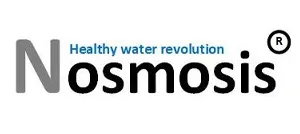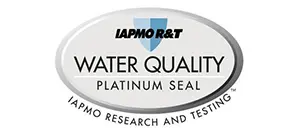Free radicals are unstable molecules produced naturally in the body or triggered by environmental factors. While they serve essential functions, such as aiding the immune system, an excess of free radicals can lead to oxidative stress—a condition that damages cells, accelerates aging, and contributes to chronic diseases. The solution? Drinking antioxidant water with a negative ORP (Oxidation-Reduction Potential) can combat these effects and promote overall well-being.
What Are Free Radicals?
Free radicals are molecules with an unpaired electron, making them highly reactive. To stabilize themselves, they “steal” electrons from other molecules, which damages cells, DNA, and proteins. This process is called oxidative stress.
Sources of free radicals include:
- Natural processes like cellular respiration.
- External factors such as pollution, smoking, UV radiation, and processed foods.
While the body has natural defenses against free radicals, an imbalance—caused by overproduction or a lack of antioxidants—can result in harmful effects.
Diseases Caused by Excess Free Radicals
Oxidative stress contributes to a variety of diseases, including:
- **Cardiovascular Diseases**
– Oxidation of “bad” LDL cholesterol leads to plaque buildup in arteries, increasing the risk of atherosclerosis, heart attacks, and strokes.
- **Cancer**
– Free radicals damage DNA, potentially leading to mutations and the development of tumors.
- **Neurological Disorders**
– Conditions like Alzheimer’s and Parkinson’s are linked to oxidative damage in brain cells.
- **Diabetes**
– Oxidative stress impairs pancreatic function and worsens metabolic complications.
- **Chronic Inflammation**
– Diseases such as arthritis, asthma, and inflammatory bowel disease are exacerbated by oxidative damage.
- **Premature Aging**
– Free radicals degrade collagen and elastin, causing wrinkles and loss of skin elasticity.
The Benefits of Antioxidant Water with negative ORP values
ORP measures a substance’s ability to oxidize or reduce. Water with a negative ORP has a high antioxidant potential, meaning it can donate electrons to neutralize free radicals and can prevent oxidative damage.
Key Benefits of Antioxidant Water:
- **Neutralizing Free Radicals**
– Protects cells and DNA from damage and reduces the risk of chronic diseases.
- **Improving Heart Health**
– Reduces LDL oxidation and supports healthy blood flow.
- **Supporting Brain Function**
– Protects neurons, enhances concentration, and reduces the risk of cognitive decline.
- **Slowing Down Aging**
– Improves skin elasticity, reduces wrinkles, and promotes a youthful appearance.
- **Boosting Energy and Recovery**
– Enhances cellular hydration and aids post-exercise recovery.
Which Health Conditions and Physical Traits Can It Improve?
- **Chronic Disease Prevention**
-Can Help to prevent cardiovascular diseases, diabetes, chronic inflammation, and neurological disorders.
- **Skin Health**
– Can Help to Keep the skin hydrated, glowing, and protected from environmental damage.
- **Stronger Immune System**
-Can Reduce oxidative stress, which strengthens the body’s natural defenses.
- **Increased Energy**
-Can Improve cellular function, metabolism, and reduces fatigue.
- **Gut Health and Digestion**
-Can Support detoxification and enhances digestive function.
Conclusion
Free radicals are a natural part of life, but their excessive presence poses significant risks to health. Antioxidant water with negative ORP values offers a simple and effective way to neutralize free radicals, protect the body from oxidative stress, and improve overall health. By incorporating this water into your daily routine, you can take a proactive step towards better health and enhanced quality of life.
The following organizations and groups would support the scientific concepts and health claims made in the article about free radicals and antioxidant water:
The article discusses free radicals, oxidative stress, and the potential benefits of consuming antioxidant water with negative Oxidation-Reduction Potential (ORP). Several reputable organizations and scientific studies provide insights into these topics:
- National Institutes of Health (NIH):
- Understanding Free Radicals and Antioxidants: The NIH explains that free radicals are unstable molecules naturally formed during exercise and when the body converts food into energy. They can also result from environmental exposures like cigarette smoke and air pollution. Antioxidants are molecules that neutralize free radicals, thereby might prevent cellular damage.
- Healthline:
- Alkaline Water and ORP: Healthline notes that alkaline water typically has a pH of 8 or 9 and must contain alkaline minerals and a negative ORP to impart substantial alkalinity. A negative ORP indicates a higher antioxidizing potential, meaning the water can donate electrons to neutralize free radicals.
- Frontiers in Chemistry:
- Oxidative Stress and Antioxidants: A review in Frontiers in Chemistry discusses how oxidative stress, caused by an imbalance between free radicals and antioxidants, contributes to various diseases, including cardiovascular diseases, cancer, and neurodegenerative disorders. The study emphasizes the importance of antioxidants in neutralizing free radicals and mitigating oxidative stress.
- MDPI – International Journal of Molecular Sciences:
- Electrolyzed-Reduced Water (ERW): Research published in this journal examines the properties of ERW, which possesses a negative ORP and exhibits antioxidative effects. The study suggests that the benefits of ERW may be attributed to its negative ORP and the presence of molecular hydrogen, both contributing to its potential to neutralize free radicals.
- Molecular Hydrogen Institute (MHI):
- Importance of ORP in Drinking Water: The MHI discusses how drinking water with a negative ORP can act as an antioxidant, neutralizing free radicals and reducing oxidative stress in the body. They note that normal tap water typically has a positive ORP, whereas water with a negative ORP can provide antioxidative benefits.
These sources provide scientific perspectives on the roles of free radicals, oxidative stress, antioxidants, and the potential benefits of consuming water with a negative ORP.
Sources
The following organizations and groups would support the scientific concepts and health claims made in the article about free radicals and antioxidant water:
Health and Medical Organizations
American Heart Association (AHA)
Advocates for heart health and highlights the role of oxidative stress in cardiovascular diseases.
Promotes dietary and lifestyle interventions, including antioxidant intake, to reduce LDL oxidation.
National Institutes of Health (NIH)
Supports research on oxidative stress and antioxidants’ role in decreasing the risk of chronic diseases, such as through:
National Institute on Aging (NIA) for aging research.
National Cancer Institute (NCI) for cancer prevention studies.
Alzheimer’s Association
Explores the link between oxidative stress and neurodegenerative diseases like Alzheimer’s.
American Academy of Dermatology (AAD)
Supports research on skin aging caused by free radicals and promotes antioxidants for skin health.
Diabetes Research Institute Foundation (DRIF)
Explores oxidative stress as a contributing factor to diabetes and the potential benefits of antioxidants.
Environmental and Wellness Organizations
Environmental Working Group (EWG)
Focuses on environmental triggers like pollution and toxins, which contribute to free radical formation.
Promotes clean water initiatives to reduce exposure to harmful substances.
Blue Zones Project
Advocates for hydration, healthy living, and antioxidant-rich diets as part of a holistic approach to longevity.
Hydrogen Medicine Research Institute
Supports studies on hydrogen-rich antioxidant water’s role in mitigating oxidative stress and chronic diseases.
The Antioxidant Research Lab
Dedicated to understanding antioxidants’ benefits and their application in health and wellness.
Water Quality and Filtration Organizations
International Water Association (IWA)
Researches water quality and technologies like ionization to improve health outcomes.
Water Quality Association (WQA)
Focuses on water treatment solutions, including systems that enhance antioxidant properties in drinking water.
Hydrogen Water Association (HWA)
Promotes hydrogen-enriched water for its potential to combat oxidative stress.












